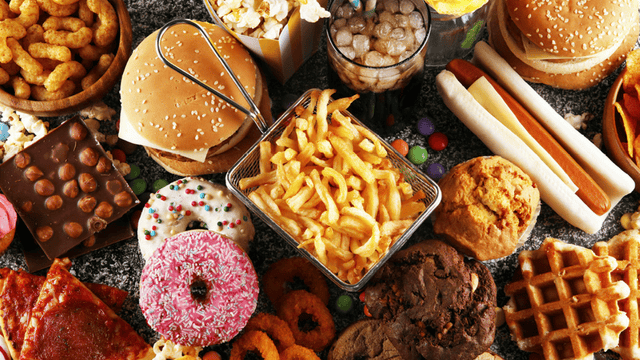Unprocessed or lightly processed foods are whole foods that retain their vitamins and nutrients. The food is in its original (or nearly so) state.
To make them fit for storage and safe to consume, these foods can be minimally altered by removing inedible components, drying, crushing, roasting, boiling, freezing, or pasteurisation.
Carrots, apples, raw chicken, melon, and unsalted nuts are examples of unprocessed or little processed foods.
A food is altered from its natural state during processing. Processed foods are created by adding salt, oil, sugar, or other ingredients.
Canned fish and vegetables, fruits in syrup, and freshly baked pieces of bread are some examples. The majority of processed foods have only two or three ingredients.
Some foods are ultra-processed or extremely processed. They most likely contain a lot of extra components including sugar, salt, fat, and artificial colours or preservatives.
Food extracts, such as lipids, starches, added sugars, and hydrogenated fats, are used to make ultra-processed foods.
They may also include additives such as artificial colours and tastes, as well as stabilisers. Frozen dinners, soft drinks, hot dogs and cold meats, fast food, packaged pastries, cakes, and salty snacks are examples of these foods.
How Do Processed Foods Affect Our Health?
A recent study published in the journal Cell Metabolism compared the effects of an ultra-processed diet on calorie intake and weight gain to the effects of an unprocessed diet.
The study included 20 healthy, overweight adults who were hospitalised. For 14 days, each study participant followed an ultra-processed diet and an unprocessed diet.
During each diet phase, the study patients were given three daily meals and told to eat as much or as little as they wanted.
Each meal was given up to 60 minutes, with snacks (either ultra-processed or unprocessed, depending on the study phase) provided throughout the day.
Total calories, fat, carbohydrate, protein, fibre, sugars, and salt were all matched among diets. The main difference was the source of calories: in the ultra-processed diet phase, 83.5% of calories came from ultra-processed meals, while 83.3% of calories came from unprocessed foods.
Read more:-
The researchers discovered that the ultra-processed diet consumed around 500 more calories per day than the unprocessed diet. The ultra-processed diet era was distinguished by a rise in carbohydrate and fat intake, but not protein.
Participants gained two pounds on average during the ultra-processed diet phase, while losing two pounds during the unprocessed diet period. Limiting ultra-processed meals, the authors found, could be a useful method for preventing and treating obesity.
There were numerous limitations to the study. For starters, this was a fairly tiny study with only 20 participants. Another finding was that individual reactions to the two diets varied significantly.
Eleven people gained a lot of weight on the ultra-processed diet, up to 13 pounds in 14 days, while a couple of people gained nothing.
It’s also uncertain how generalizable the findings are to a larger population because the study excluded those with chronic conditions like heart disease or diabetes.
Furthermore, the study was conducted in a clinical research setting, which may have influenced their eating habits (the study subjects may have been more isolated and bored than in their natural environments).







